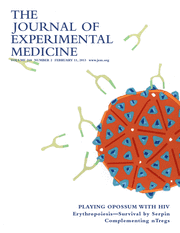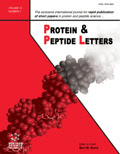
CYTOKINE & GROWTH FACTOR REVIEWS
Scope & Guideline
Unveiling Insights in Biochemistry, Genetics, and Immunology
Introduction
Aims and Scopes
- Cytokine Biology:
The journal investigates the diverse roles of cytokines in immune response modulation, inflammation, and cell signaling pathways, emphasizing their implications in health and disease. - Growth Factor Signaling:
Research covers the mechanisms by which growth factors influence cellular processes such as differentiation, proliferation, and survival, particularly in the context of cancer and tissue repair. - Intercellular Communication:
Exploring the mechanisms of intercellular communication mediated by cytokines and growth factors, including the roles of extracellular vesicles and their impact on tumor microenvironments. - Therapeutic Applications:
The journal highlights the therapeutic potential of targeting cytokine and growth factor pathways, particularly in cancer immunotherapy, autoimmune diseases, and chronic inflammatory conditions. - Translational Research:
It emphasizes the translation of basic research findings into clinical applications, providing insights into biomarker discovery and personalized medicine approaches.
Trending and Emerging
- Cancer Immunotherapy:
A significant increase in research related to cytokines and growth factors in cancer immunotherapy, highlighting the importance of immune modulation in enhancing treatment efficacy. - Neuroinflammation and Neurological Disorders:
Emerging interest in the role of cytokines in neuroinflammation, particularly concerning conditions like stroke and neurodegenerative diseases, showcases a growing recognition of their impact on neurological health. - Extracellular Vesicles:
Research focusing on extracellular vesicles as mediators of communication in tumor microenvironments and their role in immune regulation is gaining traction, indicating a shift towards understanding cell-to-cell interactions. - Aging and Senescence:
An increasing number of studies are addressing the implications of cytokines in aging and cellular senescence, emphasizing their roles in age-related diseases and potential therapeutic interventions. - Metabolic Regulation:
There is a rising trend in exploring the intersections between cytokine signaling, metabolism, and chronic diseases, reflecting a broader understanding of the systemic effects of cytokines.
Declining or Waning
- Traditional Immune Pathways:
There has been a noticeable decrease in papers focusing on classical immune pathways that were previously predominant, suggesting a shift towards more complex and nuanced interactions involving cytokines and growth factors. - Basic Cytokine Function Studies:
Research centered solely on the basic functions of individual cytokines without considering their interactions or roles in disease contexts seems to be waning, reflecting a trend towards integrative approaches. - Non-Inflammatory Roles of Cytokines:
Themes exploring the non-inflammatory roles of cytokines, such as their effects on metabolic processes, appear less frequently, indicating a potential narrowing of focus within the journal.
Similar Journals

Journal of Extracellular Vesicles
Transforming Understanding: The Science of Extracellular VesiclesJournal of Extracellular Vesicles, published by WILEY, stands at the forefront of research in the evolving fields of Cell Biology and Histology as a prestigious open-access journal that has been disseminating groundbreaking findings since 2012. With a commendable impact exemplified by its Q1 ranking in both categories for 2023, this journal offers an invaluable platform for researchers, professionals, and students to explore the critical roles of extracellular vesicles in cellular communication, disease pathology, and therapeutics. The journal is indexed in leading databases, ensuring wide visibility and accessibility of its content, which supports the collaborative spirit of scientific discovery. Featuring innovative research and comprehensive reviews, the Journal of Extracellular Vesicles not only maintains a high standard of scholarship but also fosters a community dedicated to advancing our understanding of these small yet significant cellular components.

JOURNAL OF EXPERIMENTAL MEDICINE
Fostering Collaboration for Groundbreaking ResearchJOURNAL OF EXPERIMENTAL MEDICINE, published by Rockefeller University Press, is a renowned peer-reviewed journal dedicated to advancing the field of experimental medicine since its inception in 1896. With an impressive impact factor and categorized in the Q1 quartile for Immunology, Immunology and Allergy, and Miscellaneous Medicine, this journal stands at the forefront of medical research and innovation. It provides a prestigious platform for scholars and practitioners to disseminate groundbreaking findings that drive the understanding of disease mechanisms and therapeutic strategies. While the journal is not open access, it maintains high visibility and engagement within the scientific community, fostering collaboration among researchers, professionals, and students alike. The journal's consistent ranking in the top percentiles of Scopus illustrates its significant impact and commitment to excellence in medical research.

CANCER IMMUNOLOGY IMMUNOTHERAPY
Connecting Experts to Revolutionize Cancer CareCancer Immunology Immunotherapy, published by Springer, stands as a premier journal in the fields of cancer research and immunology, holding a prestigious Q1 ranking across multiple categories, including Oncology and Medicine as of 2023. With an ISSN of 0340-7004 and an E-ISSN of 1432-0851, this journal has been a pivotal platform for groundbreaking research since its inception in 1976, continuing to provide insight into the complex interactions between the immune system and cancer. The journal's scope encompasses a wide array of topics, including novel therapeutic strategies, immunological mechanisms, and translational science aimed at advancing treatment outcomes for cancer patients. Renowned for its rigorous peer-review process and high impact factor, it attracts contributions from leading experts and researchers around the globe, positioning itself among the top-tier publications with Scopus rankings that reflect its vital role in advancing the field. Access options are generally subscription-based, ensuring a comprehensive resource for professionals and academics seeking to deepen their understanding and make meaningful contributions to cancer immunotherapy.

NATURE IMMUNOLOGY
Pioneering insights that shape the future of immunology.NATURE IMMUNOLOGY is a premier academic journal published by NATURE PORTFOLIO, dedicated to advancing the field of immunology. With an impressive impact factor that reflects its esteemed position, this journal ranks in the top quartile (Q1) of renowned categories, including Immunology and Allergy. Serving as a crucial platform for researchers, professionals, and students, NATURE IMMUNOLOGY showcases cutting-edge research, comprehensive reviews, and insightful perspectives that drive innovation in immunological science. Based in the United Kingdom, this journal has been a vital contributor to the global discourse on immune responses and related diseases since its inception in 2000. Researchers can benefit from its rigorous peer-review process, ensuring that only high-quality studies are disseminated, thus enhancing their academic pursuits and practical applications. Explore the latest findings and trends within this flourishing discipline, making NATURE IMMUNOLOGY an essential resource for anyone engaged in the study of the immune system.

CELL RESEARCH
Exploring Innovations in Molecular BiologyCELL RESEARCH is a premier peer-reviewed journal dedicated to advancing the field of cell biology and molecular biology, published by SpringerNature. With an impressive impact factor and consistently ranking in the Q1 quartile for both cell biology and molecular biology, this journal serves as a pivotal resource for researchers, professionals, and students seeking to explore the latest discoveries and advancements in cellular mechanisms and their implications for health and disease. Since its inception in 1996, CELL RESEARCH has cultivated a distinguished reputation, currently boasting ranks in the top percentile of Scopus categories, reaffirming its influence and relevance to the scientific community. Although it is not an Open Access journal, its rigorous selection process ensures the publication of high-quality articles that contribute significantly to our understanding of life sciences. For those deeply engaged in the realms of biochemistry, genetics, and molecular biology, CELL RESEARCH is an essential conduit of innovative research and critical insights.

FASEB BioAdvances
Transforming Insights into Impactful ResearchFASEB BioAdvances, published by WILEY, is an esteemed open-access journal dedicated to advancing the fields of biochemistry, molecular biology, and physiology. Since its inception in 2019, the journal has rapidly established a significant presence within the academic community, boasting an impressive impact factor reflective of its Q2 and Q3 standings across various categories, including Biochemistry, Genetics and Molecular Biology, Cancer Research, Molecular Medicine, and Physiology. The journal aims to disseminate high-quality research and innovative findings to enhance the understanding of biological processes, making it a vital resource for researchers, professionals, and students alike. With its commitment to open access, FASEB BioAdvances ensures that groundbreaking research is available to a global audience, facilitating collaboration and exploration in these rapidly evolving scientific domains.

INTERNATIONAL IMMUNOLOGY
Unveiling Innovations in Immunology for Global Impact.INTERNATIONAL IMMUNOLOGY, published by OXFORD UNIV PRESS, stands out as a premier journal in the field of immunology, providing a vital platform for disseminating groundbreaking research and innovative developments within the discipline. With an impressive Q1 ranking in Immunology and Allergy, as well as in Medicine (miscellaneous), it consistently showcases high-impact studies that contribute to the advancement of immunological knowledge. The journal spans over three decades, from its inception in 1989 to its ongoing contributions as of 2024, thus solidifying its reputation in the scientific community. Researchers, professionals, and students will find valuable articles that delve into the complexities of immune responses, therapeutic interventions, and emerging immunological paradigms, ensuring INTERNATIONAL IMMUNOLOGY remains at the forefront of knowledge in the life sciences.

PROTEIN AND PEPTIDE LETTERS
Pioneering pathways in therapeutic applications of proteins and peptides.PROTEIN AND PEPTIDE LETTERS is a prominent peer-reviewed journal published by Bentham Science Publishers Ltd, specializing in the dynamic fields of biochemistry and structural biology. With an ISSN of 0929-8665 and a corresponding E-ISSN of 1875-5305, the journal has been a pivotal platform for researchers since its inception in 1994. Spanning various aspects of protein and peptide research, it aims to disseminate groundbreaking findings that enhance our understanding of molecular mechanisms and therapeutic applications. Although categorized in the Q3 quartile for biochemistry and medicine, and Q4 in structural biology within the 2023 metrics, it remains a valuable resource in the academic arena, offering insight into the latest research and advancements. As the journal converges towards its 2024 milestone, it continues to reflect the evolving landscape of molecular research. While it currently does not offer open access, the accessibility to its impactful content is essential for students, professionals, and researchers invested in these critical scientific disciplines.

CELL PROLIFERATION
Bridging Knowledge Gaps in Cell Proliferation StudiesCELL PROLIFERATION, published by Wiley, is a leading open-access journal that has been at the forefront of research since its inception in 1968. With an impact factor that solidifies its position in the Q1 category of both Cell Biology and Medicine (Miscellaneous), this journal serves as a premier platform for disseminating groundbreaking studies in the field of cellular and molecular biology. The journal is renowned for its rigorous peer-review process and comprehensive coverage of topics related to cell growth, division, and differentiation, making it an invaluable resource for researchers, professionals, and students alike. With its notable Scopus ranking of #30 in Biochemistry, Genetics, and Molecular Biology: Cell Biology, and a robust open access model since 2019, CELL PROLIFERATION ensures that cutting-edge research is accessible to a global audience, fostering collaboration and innovation across the scientific community. Located in the United Kingdom, the journal remains committed to enhancing the understanding of cellular processes, thereby influencing developments in medicine and biotechnology.

FEBS LETTERS
Fostering Knowledge Exchange in Life SciencesFEBS LETTERS, published by Wiley, is a prestigious journal that has firmly established its place in the fields of biochemistry, biophysics, genetics, molecular biology, cell biology, and structural biology. With an esteemed history dating back to 1968, this journal continues to be a vital resource for researchers and professionals involved in the biological sciences. It boasts impressive quartile rankings, including Q1 statuses in several categories such as Biochemistry and Genetics, reflecting its high impact factor and significant contribution to scientific discourse. FEBS LETTERS provides a platform for innovative findings and critical reviews, fostering the exchange of knowledge and ideas within the scientific community. Although it operates under a subscription model, the journal ensures broad dissemination of groundbreaking research through its rigorous peer-review process. The vibrant discussions encouraged by articles published in FEBS LETTERS aim to inspire current and future generations of scientists to push the boundaries of biological understanding, making it an indispensable resource for anyone dedicated to advancing their knowledge in these dynamic fields.